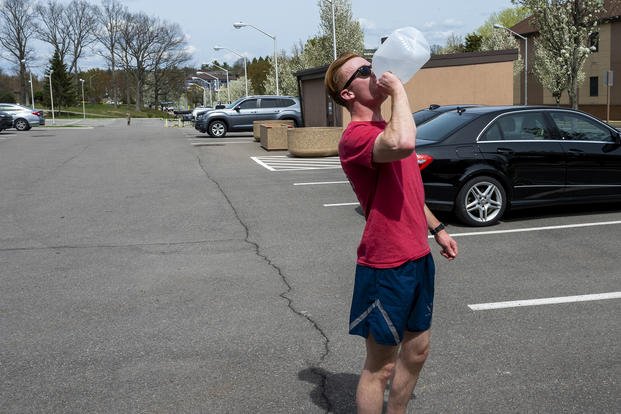When looking for a training program, you have many options. You can jump into a group training class, buy a fitness book or video, or even get a personal trainer. Any might work perfectly for others, but not necessarily work for you.
Finding the perfect exercise plan that works best for you and your goals at your current fitness level is not easy. There is no one-stop shop for every person looking to get into better health and conditioning. Even personalized training programs will have a phase or two of experimenting with what actually works best for you.
However, some constraints never will change when it comes to fitness and dieting. Among them:
Consistency and daily effort become habits. You have to do something daily, whether it is a full weight-room workout, a walk for 20 minutes or watching what you eat. Try having someone hold you accountable; this can be very helpful for keeping you consistent at building good habits. Whether it is a workout partner, a paid trainer or an upcoming event, all are great ways to keep yourself moving when you lose motivation. Eventually, your motivation to start has to evolve into habits and discipline in order for you to be successful.
Caloric deficits. You cannot outwork your diet. You have to find ways to reduce calories and burn them through movement. Reducing sugar is a great start to eliminate excess calories from your diet. Reducing or eliminating sodas, juices, sweets and sugary snacks can help you drop 500 calories a day easily, depending upon your current eating habits. Many people have lost 20-30 pounds in a year just by quitting their soda habit. Dropping sugar has other benefits, too -- a reduction in belly fat, cavities and better health screening numbers.
Do not eliminate macronutrients (protein, fats, carbohydrates). People confuse sugary and sweet carbs with those in fruits and vegetables. Fruits and vegetables -- especially raw -- have minerals, vitamins and critical nutrients for your health. Unless you are a diabetic/prediabetic, carbs (fruits/vegetables) should not be reduced in your diet. Moving more and eating less (but not starving yourself) is required to see results with any fitness program.
Stay hydrated. We all need water. If you can take 50% to 75% of your body weight (in pounds) and drink that much in ounces, you will have plenty of water in your system each day. If you are sweating profusely during your activities, you need that water even more, plus some electrolytes (sodium, potassium, calcium) in your diet.
Core work. You only will be as strong as your core. Make sure whatever your program is, it includes exercises that balance out pushing or pulling exercises or cardio-only workouts. The Lower Back Plan is a solid core workout plan that features abs, upper back, lower back and stretching. Doing these exercises at least every other day as a cooldown workout or a stand-alone workout is an easy way to prepare for your core to grow.
Sleep. The amount of sleep you get each day will determine your ability to recover fully from a previous training session. Irregular sleep patterns are a major cause of our inability to recover from either a stressful day or a tough workout. Strive to get at least six to seven hours. Eight hours is ideal for most people. Multiple days of less than four to five hours of sleep can cause many symptoms of overtraining or being overstressed.
Rest and recovery days. Your routine requires rest/recovery mobility/de-stressing built in or at least suggested on "days off."
Proper technique. All exercises require proper form and technique to help you perform at your best and to prevent injuries. On YouTube, there are plenty of videos that show proper technique for calisthenics, running, weightlifting, swimming and more.
Long haul, not short term. There is no such thing as an effective workout plan that does not progress logically over time. And there is no healthy shortcut to your goal. You have to put in the time. Fitness has to be a lifestyle change to work for you long term. This goes for any program.
Stew Smith is a former Navy SEAL and fitness author certified as a Strength and Conditioning Specialist (CSCS) with the National Strength and Conditioning Association. Visit his Fitness eBook store if you're looking to start a workout program to create a healthy lifestyle. Send your fitness questions to stew@stewsmith.com.
Want to Learn More About Military Life?
Whether you're thinking of joining the military, looking for fitness and basic training tips, or keeping up with military life and benefits, Military.com has you covered. Subscribe to Military.com to have military news, updates and resources delivered directly to your inbox.



















